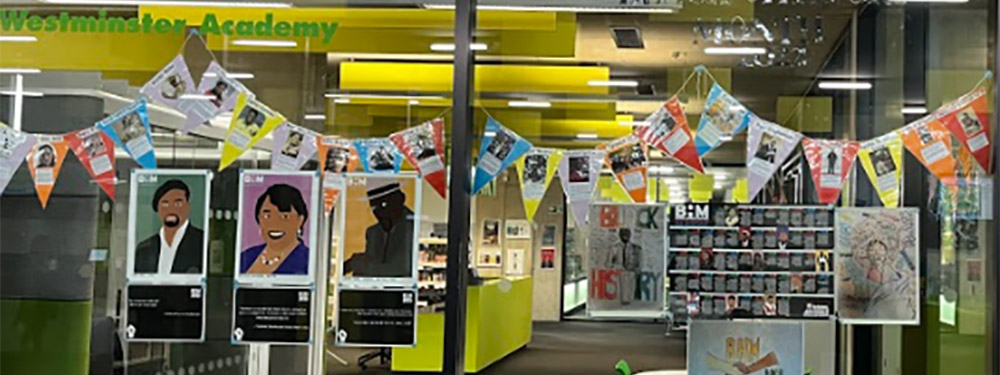
By Ruhina Cockar, Westminster Academy
Two years ago, Westminster Academy’s staff and students felt there was a need to review our curriculum with regards to the lens we see events through, and how it supports the wellbeing of our students who come from a diverse community with lots of different racial groups and different ethnic backgrounds.
In response to student voice, we created a student focus group to create a place where students could talk about the issues that affected their lives, to discuss what they wanted to see in the curriculum and to create an anti-racism policy. The latter was an important step for us show our commitment to the promotion of an anti-racism and anti-discriminatory culture within the school and was written in consultation with B.A.R.E formally The Prosperity Project. It also feeds into our curriculum vision of ensuring what we teach is both a “mirror and a window” for our students.
It was important to the students that what we did was not tokenistic, but purposeful, so some of the work towards this included:
- Diversifying the texts we study in English to include Lemn Sissay’s theatrical adaptation of Refugee Boy and non-fiction texts written by contemporary figures of note such as Alicia Garza and Malala Yousafzai as an example.
- Re-designing the history curriculum to decolonise the curriculum through exposing students to diverse experiences of the past and demonstrating the importance of understanding and celebrating the history of a wide range of different cultures.
- Recognising and showcasing the historical, important figures who have contributed to mathematics, science, the arts and many world events in the curriculum and a range of diverse representations of excellence and achievement are shown as role models. The displays around the school were updated to reflect this.
Throughout Black History Month we have celebrated the achievements of modern Black role models like Lewis Hamilton, whilst also learning about successful Black explorers like Matthew Henson and composers such as Joseph Boulogne, Chevalier de Saint-Georges. Given the location of the school it is important for students to understand and know the context of the role the community played in the history of Black resistance: we’re a short distance away from Notting Hill and The Mangrove Restaurant owned by Frank Crichlow.
The impact of this is best exemplified by a collection of comments by the students on what they have learned and seen:
“Black history is essentially just history, so it’s been good to learn Black history and see how it fits into every part of life”
“The work on stereotypes has been important to raise awareness of your own bias”
“It’s important to give credit to those who deserve it across history and time – it is to give thanks to them and not take away their effort and hard work”
“I feel the school is a more welcoming environment because the representation has allowed us to see ourselves in a more positive light and see how much impact we have made in the community”
We have also had lunchtime menus where we have eaten Caribbean food, our lesson transition music has been showcasing music from Black artists, and we have further events planned where we will showcase the different cultures through film and objects.
All these measures are embedded to ensure our curriculum is relevant and relatable to the cultural context of our school so that students can feel and be safe, secure and successful.

